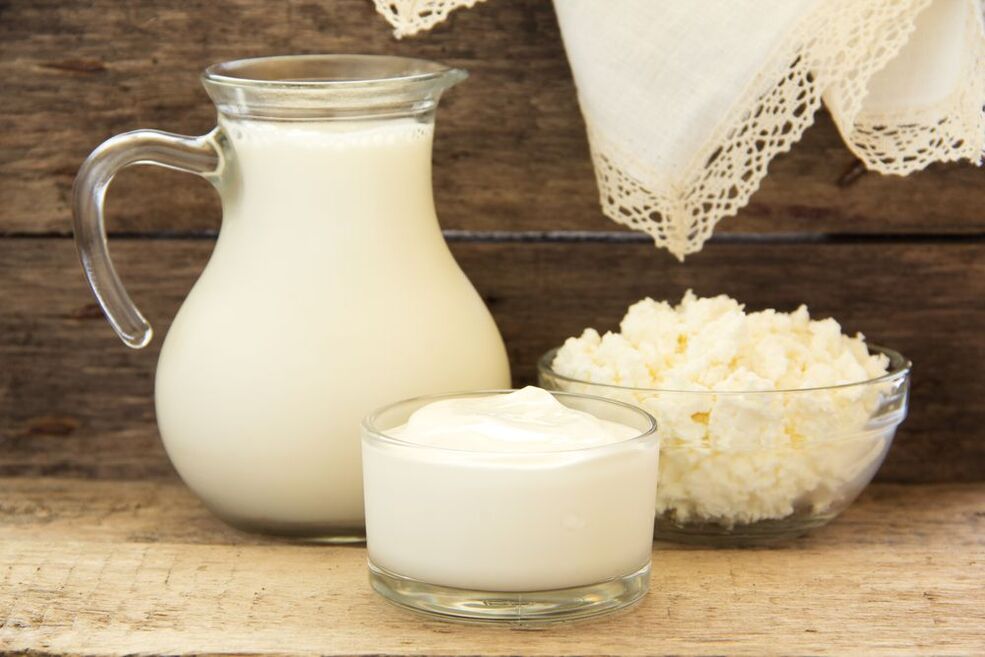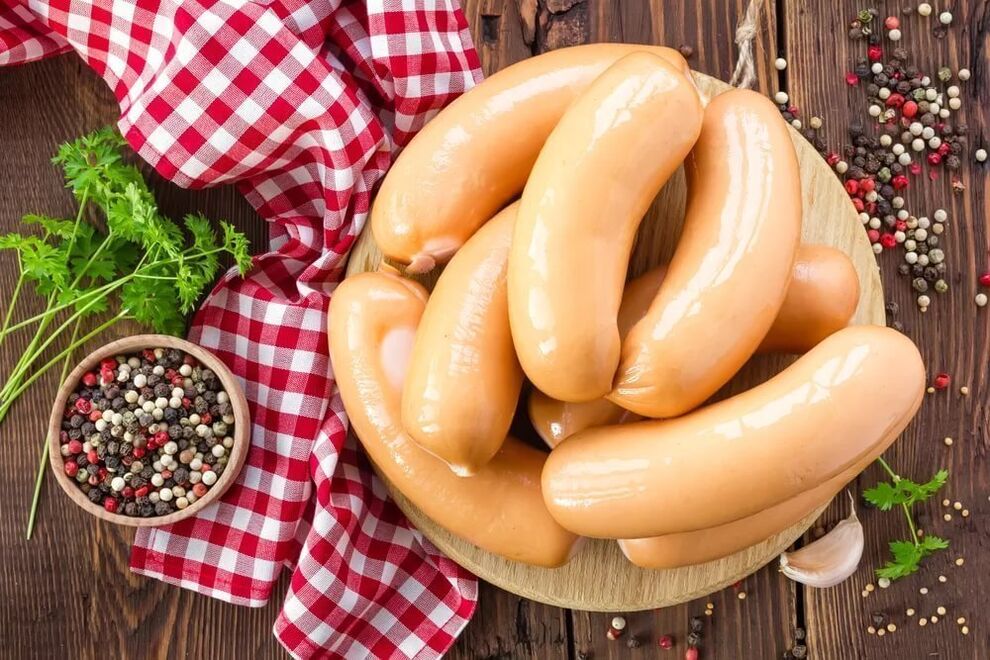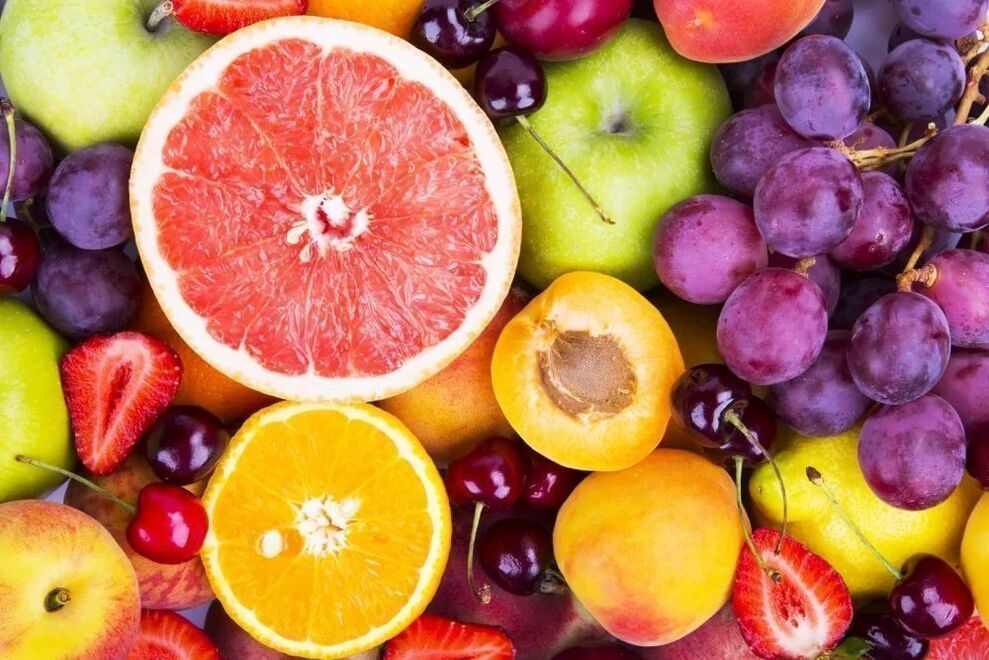For effective weight loss, you need to reduce the calorie content of the diet. In combination with regular physical activity, it will give the result - the extra pounds will gradually begin to disappear. Review your menu, you will probably have to exclude or limit many products to a minimum – sweet, floury, fatty. Let's see which foods to completely remove from the diet for the duration of the diet, and which to leave, reducing their number on the menu.
Sugar is the main enemy of weight loss
Sugar is the first product on the list that is limited during weight loss.
Giving up the granulated sugar with which you sweeten tea or add to homemade cakes will not be enough. You can point to an impressive list of foods that are very high in sugar – and these should be avoided too. Packaged sodas and juices, breakfast cereals, instant oatmeal, confectionery.
Those with a sweet tooth will certainly struggle. You will have to fight the habit of constantly chewing candy. Try replacing sugar with honey - it's a natural sweetener that won't hurt your figure. There are also artificial sweeteners. But before adding one to your diet, it doesn't hurt to consult a nutritionist - not all products are safe, there are contraindications.
Fat dairy products

Milk, yogurt, cottage cheese, kefir are those products that are present in many balanced diets. They contribute to the normalization of the gastrointestinal tract, which is very important if you decide to lose weight. But not all dairy products are right for you now! Choose those that contain little fat.
It would seem that there is nothing easier - to start buying skimmed milk and kefir. But no. Fat-free dairy products have a high sugar content - fats (and with them a significant part of useful substances) are "removed" by manufacturers, replacing them with carbohydrates. Low-fat foods are therefore not suitable for a diet either! Choose milk and kefir with 1-1. 5% fat - the best option. The fat content of cottage cheese suitable for a dietary diet is 5-10%, yogurt is 1. 5-2. 5%.
Pay attention to the quality of the dairy products you buy. With milk, cottage cheese and kefir, everything is simple - a very small list of raw materials used. But manufacturers often add a lot of sugar to yogurts and grain desserts (including low-calorie ones). It's great if you spend time making homemade fermented dairy products - tasty and healthy.
fatty meats
Diet foods aren't as "boring" as you think. The low calorie menu will include many foods that you have already eaten, including meat. It is a source of protein that the body needs! And to lose weight, you don't have to switch to a vegetarian lifestyle.
Choose lean meats - chicken, rabbit, turkey, veal. Pay attention to which parts of the carcass you use to cook hot dishes. Take the breasts, they are even less fat. Avoid fatty pork. Or at least do not fry it in oil when preparing dinner - the calorie content becomes higher.
salty food

A large amount of salt consumed retains fluids in the body, which certainly does not contribute to weight loss.
But you can't completely exclude salt from the diet! Keep adding salt to dishes, but only in smaller amounts. Refuse smoked meat products, sausages and sausages - they contain a lot of salt (moreover, they are high in calories). It makes absolutely no sense to replace salt with soy sauce, as many do (e. g. for salad dressing) - the amount of salt in it rolls!
Baked goods
Premium flour baked goods and weight loss are incompatible things! Butter buns, donuts, pies, white bread - all this is delicious, but high in calories. The composition of bakery products usually contains wheat flour, yeast, sugar - the enemies of any diet.
Can't get bread out of your diet? Then replace at least the white with rye or a whole grain flour compound. Better yet, bake your own unleavened bread.
Nuts as a dietary snack
Nuts are often included in diet meals as a snack. It is a healthy product with vegetable fats and vitamins in the composition. But be sure to control the amount of nuts you eat, as many of them are high in calories! For example, in peanuts and cashews - about 550 kcal/100 g, in almonds - about 580 kcal/100 g, in hazelnuts and walnuts - about 650 kcal/100 g.
In order not to disturb the diet, eat no more than 25-30 g of nuts per day. Such a quantity of them will not harm the figure - a hearty, tasty and healthy snack.
Butter
100 g of butter contain more than 700 kcal. High calorie product. And if you also spread butter on a piece of white bread, you can forget about the diet.
Natural butter is useful - it contains vitamins and fatty acids necessary for the normal functioning of the body. But that's only if the product is made from 'real' milk, and not from vegetable fats and reconstituted milk powder, as some manufacturers do! And no matter how useful natural butter is, control the amount of its consumption - regardless of whether you are on a diet or not.
Reduce the amount of butter in your daily diet to 20-25 g and it is advisable to eat this "portion" in the morning.
sweet fruit

Is it possible to lose weight without fresh fruits and vegetables? No. Be sure to include them in your diet!
But be careful what type of fruit you enter on the menu. Some fruits are high in calories due to the large amount of sugar in the composition. These include bananas, grapes, persimmons, mangoes, avocados. Of course, their presence in the diet will not "slow down" weight loss much, but eat them less than other fruits.
And forget the canned fruit! This sweet sauce with flavors, sweeteners and dyes, in which fruits are "pickled", is definitely not suitable for a diet menu - you will not be able to lose weight on such a "canned" diet. The same goes for dried fruits - their calorie content is much higher than that of fresh fruits. For example: grapes contain 40-70 kcal / 100 g, and the calorie content of raisins is much higher - more than 250 kcal / 100 g. Dried fruits are useful, but eating more than 30 g per day if you are on a diet is not recommended.




















